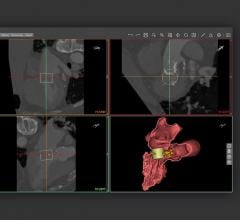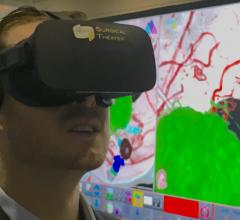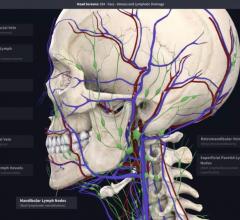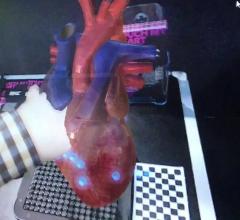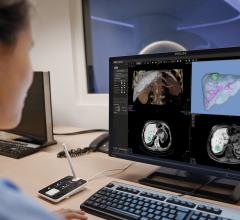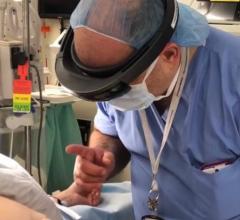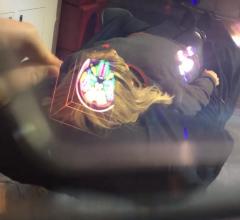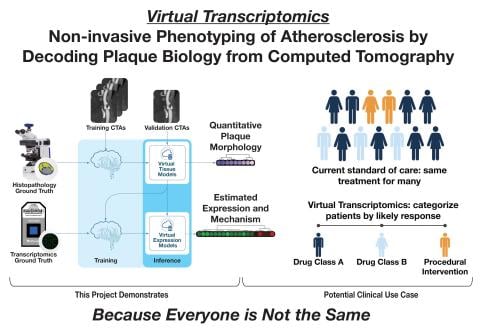
Early detection of high-risk plaque phenotypes holds the promise to prevent myocardial infarction and ischemic stroke by enabling personalized therapeutics. The company Elucid has developed AI to identify these atherosclerotic plaque phenotypes from a CT scan.
March 23, 2021 — Researchers at the Karolinska Institute in Stockholm, Sweden, have published the first-of-its-kind estimation of coding and non-coding RNA transcripts from a computed tomography (CT) angiography scan using artificial intelligence (AI) software. The promise of this work is to enable true precision medicine for cardiovascular disease.
The research, led by Dr. Ulf Hedin, was published in the American Heart Association (AHA) journal, Arteriosclerosis, Thrombosis, and Vascular Biology, in the study entitled “Virtual Transcriptomics.”[1] The study uses technology developed by Elucid, a medical technology company developing AI software to enable cardiovascular disease detection.
“Understanding a patient’s gene expression within atherosclerotic plaque may provide novel prognostic insights. This typically would require tissue biopsy or surgery, which is not feasible for most patients,” said Gregg W. Stone, M.D., director of academic affairs for the Mount Sinai Heart Health System. “This innovative study demonstrates the potential of computed tomography-based Virtual Transcriptomics to non-invasively predict gene expression, which opens up the field to potential new therapeutic approaches.”
There have been numerous advancements in the world of cardiovascular therapeutics over the past decades, including development of intensive lipid-lowering agents such as PCSK9 inhibitors and anti-inflammatory therapies such as canakinumab. However, the promise of these therapeutics has yet to be fully realized because they are cost prohibitive and potentially harmful to prescribe to patients who are unlikely to respond. As a result, their use has been severely limited, leading to suboptimal medical therapy selection and potentially avoidable heart attacks and strokes.
“The ability to perform analyses from noninvasive imaging that identify cellular and molecular level function requires more than just a technical perspective,” said Andrew Buckler, first author on the study and founder of Elucid. “Our partnership with Karolinska Institute provides deep insights into biology as well as access to patient samples that are not easy to come by. In turn, the use of our unique technology opens analysis alternatives not previously possible. We are grateful for the truly synergistic activity made possible by biologists, clinicians, and technologists working together and creating the possibility for cardiac treatment to become part of the precision medicine paradigm.”
Elucid’s platform employs machine learning intelligence trained with CT angiographies (CTA) paired with transcriptomics from surgical specimens for ground truth. Once trained, the software is then able to estimate plaque morphology and plaque transcriptomes from new patients where only the CT angiography is available. The platform also creates the possibility for pharmaceutical companies to leverage its capabilities for longitudinal transcriptional profiling during drug development. Elucid’s plaque morphology capabilities have already been used to demonstrate efficacy of numerous cardiovascular therapeutics; the addition of expression holds significant promise.
About the Elucid AI Technology
Elucid is a Boston-based medical technology company using uniquely interpretable and validated AI to provide physicians with a cost-effective means to optimize treatment decisions for patients with known or suspected cardiovascular disease and drive diagnostic precision forward towards personalized medicine. The company’s software is the first FDA-Cleared and CE-marked non-invasive tool to quantify atherosclerotic plaque using histology, quantify lipid rich necrotic core, and determine plaque stability from CTA.
The technology is also capable of deriving fractional flow reserve (FFR-CT) from the CT scans based on the vasodilative capacity of the vessel wall.
Elucid’s software is available for commercial use in the U.S. and Europe.
For more information: www.elucidbio.com
Reference:

 May 12, 2020
May 12, 2020 

